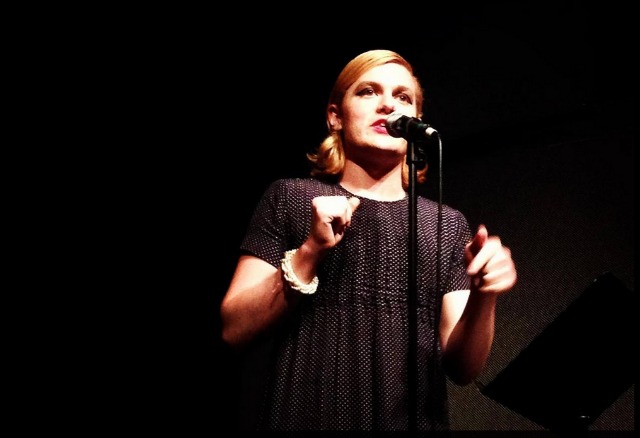Meet The Transgender Artist Fighting The City's Nudity Ordinance
By Gwendolyn Purdom in News on Aug 26, 2016 4:00PM
Bea Sullivan-Knoff's art depends on her being vulnerable. The 23-year-old calls her work a "marriage of art and activism," but as she's incorporated more nudity into her most recent performances, Sullivan-Knopf says a Chicago ordinance that prohibits public exposure of "the female breast at or below the areola thereof" at any establishment that serves alcohol has made achieving that marriage exceedingly difficult.
"I can’t do something that is going to be the most vulnerable or has the most potential to move and change people, and to get them to reflect on how they relate to their own bodies, to other people’s bodies, to trans bodies, how they understand what beautiful can look like," Sullivan-Knoff, who is transgender, told Chicagoist.
On Wednesday, Sullivan-Knoff filed suit against Mayor Rahm Emanuel and the city of Chicago challenging the law, claiming it violates her right to equal protection against discrimination based on sex or gender, her First Amendment right to freedom of expression, and her due process rights, among others.
"There is no important government interest for the difference in treatment and [the ordinance] reinforces archaic stereotypes and overbroad generalizations of the impropriety of women’s breasts versus men’s breasts, which also have areola," the suit, filed by Sullivan-Knoff and her lawyer Mary Grieb, says. The suit also points out the ordinance is problematic when it comes to "what constitutes as 'female breast' and how this classification of physical anatomy would be applied to transgender men who may or may not have what would be considered 'female breasts' in accordance with these statutes."
It's not the first time the ordinance, and the topic of topless equality in Chicago in general, has come up in recent memory. In April, Ald. Emma Mitts (37th) pushed for the law to be changed as a way to better regulate alcohol consumption at strip clubs (because of the ordinance, many clubs are BYOB), only to later withdraw her support when it became clear the move would allow for full-frontal nudity.
National movements calling attention to the banning of only female breasts like Free The Nipple and Go Topless Day, which this year falls on Sunday, have also prompted local legal action. After Sonoko Tagami was ticketed for indecent exposure at 2014's lakefront "Go Topless" event, she filed two suits against the city. The city argued that her claims were unfounded as “female breasts are considered erogenous in a way that male breasts are not.”
Sullivan-Knoff—unlike members of some women's groups who opposed Ald. Mitts' motion to change the ordinance on the grounds that it would promote sexual exploitation or violence against women—rejects the premise that female bodies should be viewed, or governed, differently than male bodies.
"The idea that in order to protect women we need to regulate what women are able to do is ultimately sexist," Sullivan-Knoff said. "It's basically blaming women like, 'Oh, if you wear less then assaults will happen to you.' It takes for granted that there are people who are commiting the assault."
While she says she hasn't explicitly worked with groups who are organizing events like "Go Topless Day," Sullivan-Knoff says she's received a lot of encouragement from the transgender community and her artistic community since going public with the suit this week. The city has yet to respond to the action, but for Sullivan-Knoff, even just the conversation the suit has already generated is a step in the right direction, albeit a small one. In her dream world, Sullivan-Knoff says, gender wouldn't exist as a legal category at all.
"The people who are moving across or in between or outside of these two poles, where is there room for us to exist legally?" she said. "If we abolished the legal category completely that that would start to pave the way for people to think in that more fluid way."
